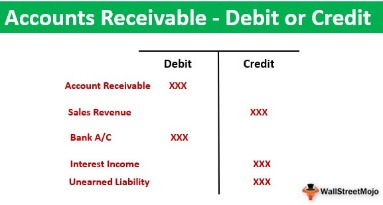
You get to operate under an established brand, benefitting from their marketing muscle, operational systems, and often a comprehensive playbook on how to run the business. However, while franchising can be a shortcut to entrepreneurial success, it brings its unique complexities—especially in the realm of accounting. Here, we delve into franchise accounting, focusing on the crucial aspects that both Franchisees and Franchisors should understand, including firms, software, and services what is work in process inventory definition, formula and benefits for your business that can help. Managing the finances of a master franchise can be complex, as the franchisee has to oversee the accounting process for multiple franchisees. However, this model provides a significant opportunity for growth and expansion, as the franchisee can benefit from the revenue generated by multiple franchise units. The master franchisee can also provide support and guidance to the franchisees in managing their finances, ensuring consistency and accuracy in financial reporting.
Having a clear budget is the best method to assure a healthy cash flow.
The franchise model is a win-win situation for both the franchisee and the franchisor. Franchising accounting is similar to standard business accounting, but there are some unique fees and expenses to consider (e.g. franchise fees and marketing expenses). It’s important to stay updated on changes in tax laws that may impact the franchise business. This involves monitoring updates from tax authorities and engaging the services of tax professionals to ensure compliance with tax laws and regulations. Then you must know the significance of franchise accounting for the overall success of your venture.

Conduct Regular Financial Analysis and Reporting
It helps franchise owners assess their financial stability and liquidity, which is crucial for planning future investments and managing debt. By regularly reviewing the balance sheet, franchise owners how to calculate gross profit margin can identify trends and make strategic adjustments to maintain a healthy financial position. Understanding the financial health of a franchise begins with mastering its key financial statements.
Franchise Accounting Best Practice #6: Separate Personal & Business Expenses
Let’s say that Maid Magic franchises its cleaning services to Oscar for an initial cost of $50,000. Within that cost includes the initial payment to use the brand and for additional training and software services. This is considered revenue to the franchisor and an intangible asset being acquired to the franchisee. In addition, it also ensures operational consistency across all franchise locations. If you’re wondering what franchise accounting is, what all is included in it, and how you can ensure its effective and accurate management, read this detailed guide. In this guide, you’ll be learning the basics of franchise accounting, its key glossary terms , and activities involved in it.

With so many options on the market, it can be difficult to know what software is best for your franchise. Throughout the years, I have discovered that rejection is an inevitable part of entrepreneurship, and learning to embrace it is crucial for achieving success. Entrepreneur Josh Kaufman says that the average person with an idea can go from working a job to earning $10,000 a month running their own business — no MBA required.
Being the owner of the intellectual property, the franchisor entrusts its brand and business model to franchisees, who then operate individual locations under the franchise license. The franchisor’s primary responsibility is to manage the big picture of the brand, ensuring consistency across all franchise locations and fostering growth. Implementing internal controls is essential to prevent fraud and ensure compliance with tax laws and regulations. This involves setting up procedures to monitor financial transactions, including authorization, segregation of duties, and regular audits. Effective internal controls will help minimize the risk of financial loss and provide assurance to franchise owners and stakeholders.
For the most part, franchise accounting is the same as non-franchise accounting, but there are a few idiosyncrasies you need to keep in mind. It is the combination of a predominant mindset, actions (both big and small) that we all commit to every day, and the underlying processes, programs and systems supporting how work gets done. Helping clients meet their business challenges begins with an in-depth understanding of the industries in which they work.
However, some franchisors may require weekly or quarterly payments, depending on their operational needs and the nature of the business. The timing of these payments can impact the franchisee’s cash flow management, making it essential for both franchisors and franchisees to agree on a schedule that supports what is time and a half and how to get it right the financial health of the franchise. Being a franchisee also means that you must adhere to the franchisor’s accounting standards. This includes having up-to-date financial statements, ensuring compliance with all government regulations, and maintaining accurate records of all sales and expenses.
Ideally, you’d have an accounting partner you can trust with all the nuances of your business so you can focus on running everything else. Whether you’re running a mom-and-pop pizza shop or starting your own franchise, proper accounting and bookkeeping is an essential part of running a successful business. The franchisor uses the marketing fund for advertising materials that promote the entire franchise’s brand. The fees allow the franchisee to own the rights to the business’s brand, products, and services. Look for software that can integrate with other systems such as CRM and POS, and has customizable features to meet your franchise business needs.
- Within that cost includes the initial payment to use the brand and for additional training and software services.
- To do that, you need to keep track of your finances and understand what your expenses are, and what your cash flow is.
- Financial reporting is important for the franchise owner, as it provides a snapshot of the financial health of the business.
Regardless of which software you choose, make sure it fits your franchise’s size and budget as well as provides the features you need to run your business successfully. MarginEdge also has automated tools to help you efficiently manage labor costs, minimize waste, and identify issues or trends in your financial performance. The software integrates with point-of-sale systems so you can quickly and easily track sales, manage inventory, and keep track of invoices.
It isn’t realistic to expect that you’ll be able to do the same without any training. All businesses have certain things in common, like overhead costs, revenue, and profits. Accounting is simply keeping records of financial transactions related to your business. If you’re new to entrepreneurship and need help getting started with accounting for your franchise, you’re in the right place.
If you already have an accounting background, you probably won’t need to hire an accountant. However, if you’re running a franchise, you’ll likely want to work with one so that you can focus on other aspects of your business. While it’s possible to get started with some basic accounting yourself, it’s important to remember that professional accountants go through several years of training to learn how to do their jobs.